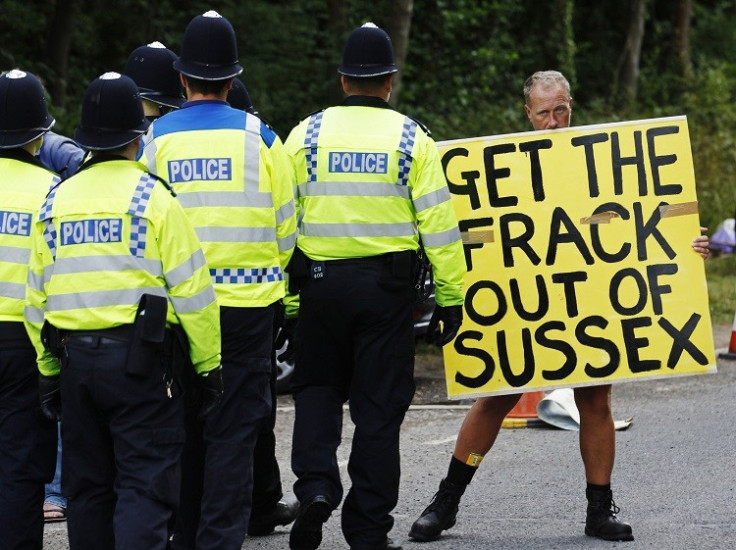UK Shale Gas: Cuadrilla Defies Anti-Fracking Protests By Resuming Lancashire Production

Cuadrilla has defiantly revealed that it is determined to reach its full production potential, by fracking eight wells at exploration sites in Lancashire, northwest England, despite heavy protests surrounding the controversial method of energy extraction.
According to a statement by one of Britain's key shale gas drillers, Cuadrilla, the group said it aims to resume long term plans to extract trillions of cubic feet of the unconventional gas, despite scaling back on production last summer
The group said Cuadrilla will first apply for permission to drill and use hydraulic fracturing – also known as fracking – to test the flow of gas from up to four exploration wells each at Fylde's Roseacre Wood and Preston New Road.
"This will allow us to reduce the potential impact on the local area during exploration while still gathering the important information we need to determine how much gas could be recovered," said Cuadrilla's chief executive Francis Egan.
Shale gas is extracted by fracking and has already transformed the US energy market by lowering gas and coal prices.
Fracking involves drilling holes deep into the ground and then using high-pressure liquid to fracture shale rocks to release gas trapped inside.
A British Geological Survey study has also confirmed that there are 1,300 trillion cubic feet of shale gas reserves lying under Yorkshire and Lancashire.
However, environmentalists have criticised the effect the method would have on the surrounding areas and possibly on the health of the local inhabitants.
Last summer, Cuadrilla bowed down to pressure and scaled back its exploratory drilling work at the Balcombe site in Sussex after police warnings of potential civil disobedience ahead of several days' protesting by a thousand anti-fracking campaigners.
However, since then, the British government's health agency has revealed that the risks to public health from exposure to fracking emissions are low.
And according to Water UK, Britain's developing shale gas industry will not put undue pressure on water supplies and environmental risks will be minimised.
The group signed a Memorandum of Understanding (MoU) with the United Kingdom Onshore Operators Group (UKOOG), so members will cooperate throughout the shale gas exploration and extraction process and minimise any risks to the environment.
"This agreement with Water UK should give reassurance to local communities that the development of shale gas in the UK can proceed with minimal impact upon the local water and waste services," said Ken Cronin, chief executive of UKOOG at the time.
"The environmental regulation covering the onshore oil and gas industry in the UK is among the most stringent in the world and, in addition, the industry has agreed to tough and transparent guidelines on how we operate and interact with local communities."
On top of various regulatory pledges, to safeguard the environment, the UK government has also tried to sweeten the deal with local communities by offering councils a slice of the tax collected from major energy groups.
© Copyright IBTimes 2024. All rights reserved.






